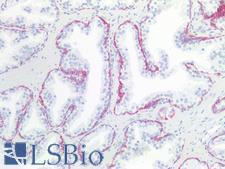Login
Registration enables users to use special features of this website, such as past
order histories, retained contact details for faster checkout, review submissions, and special promotions.
order histories, retained contact details for faster checkout, review submissions, and special promotions.
Forgot password?
Registration enables users to use special features of this website, such as past
order histories, retained contact details for faster checkout, review submissions, and special promotions.
order histories, retained contact details for faster checkout, review submissions, and special promotions.
Quick Order
Products
Antibodies
ELISA and Assay Kits
Research Areas
Infectious Disease
Resources
Purchasing
Reference Material
Contact Us
Location
Corporate Headquarters
Vector Laboratories, Inc.
6737 Mowry Ave
Newark, CA 94560
United States
Telephone Numbers
Customer Service: (800) 227-6666 / (650) 697-3600
Contact Us
Additional Contact Details
Login
Registration enables users to use special features of this website, such as past
order histories, retained contact details for faster checkout, review submissions, and special promotions.
order histories, retained contact details for faster checkout, review submissions, and special promotions.
Forgot password?
Registration enables users to use special features of this website, such as past
order histories, retained contact details for faster checkout, review submissions, and special promotions.
order histories, retained contact details for faster checkout, review submissions, and special promotions.
Quick Order
PathPlusTM Keratin, HMW Antibodies
High-molecular weight keratin (HMWK, HMWCK) refers to the group of large cytokeratins KRT1, KRT5, KRT10 and KRT14. Antibodies to HMWK are used to identify prostate basal cells and also squamous, ductal and other epithelial cells. HMWK is also positive in thyroid solid cell nests. Clone 34betaE12 (CK903) recognizes KRT1, KRT5, KRT10 and KRT14, while DE-SQ recognizes KRT13, KRT14, KRT15 and KRT16. HMWK antibodies should have strong cytoplasmic staining. They are used in the diagnosis of prostate cancer to determine presence of basal cells and to differentiate PIN (prostatic intraepithelial neoplasia, HMWK positive) and small benign acinar lesions (positive) from adenocarcinoma (typically negative). Furthermore, HMWK antibodies are used in breast cancer to distinguish lobular carcinoma in situ (positive) from ductal carcinoma in situ (negative). The list of HMWK-positive lesions also includes urothelial carcinoma, thyroid papillary carcinoma and CASTLE tumors, epithelioid mesothelioma, transitional cell carcinoma, nasopharyngeal carcinoma, high grade thymoma, squamous cell carcinoma, non-small cell carcinoma of the lung, kidney collecting duct carcinoma, endometrial carcinoma and ovarian clear cell carcinoma. HMWK is often paired with p63 and AMACR for increased sensitivity.
References: Arch. Pathol. Lab. Med. 132 (3): 349–58, PMID: 18318578; Mod. Pathol. 15 (11): 1181–90, PMID: 12429797; Mod Pathol. 2004 Mar;17(3):360-79, PMID: 14739906; Am J Surg Pathol 2006;30:994, PMID:16861971; Int J Gynecol Pathol. 2001 Apr;20(2):155-9, PMID: 11293161; Appl Immunohistochem Mol Morphol 2000;8:42, PMID: 10937048
1 PathPlusTM Antibody

☰ Filters
Products
Antibodies
(1)
Type
Primary
(1)
Target
Keratin, HMW
(1)
Reactivity
Human
(1)
Application
IHC-Fr
(1)
IHC-P
(1)
Host
mouse
(1)
Product Group
PathPlus Cancer
(1)
PathPlus Cancer Pathology
(1)
Isotype
IgG1,k
(1)
Clonality
monoclonal mc
(1)
Clone
34BE12
(1)
Format
Unconjugated
(1)
Publications
No
(1)

Cancer Pathology
Cancer
Keratin, HMW Mouse anti-Human Monoclonal (34BE12) Antibody
Human
IHC-Fr, IHC-P
Unconjugated
0.05 ml/$375
Viewing 1-1
of 1
product results











